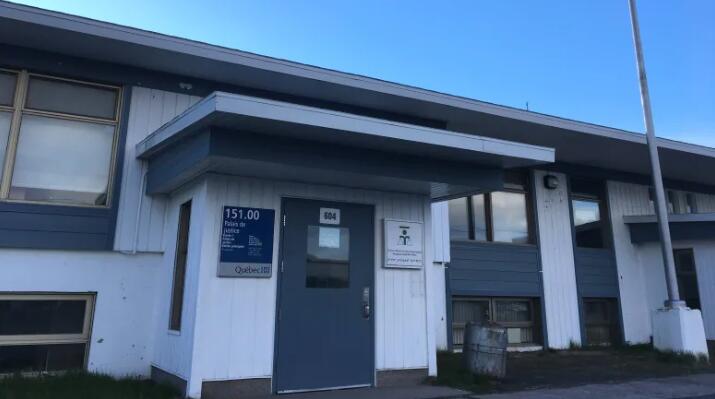Quebec under pressure to solve shortage of judges who serve in Inuit communities

Court proceedings for entire week cancelled due to shortage of personnel
Quebec’s Inuit and legal communities are calling on Premier François Legault’s government to increase the number of judges who can serve in the province’s north, following the cancellation of a week of hearings that had been scheduled in Kuujjuaq, the largest community in Nunavik.
According to Makivik — one of the main players in the justice system in northern Quebec — Inuit are paying the price for a shortage of judges in the judicial district of Abitibi, which handles court services in Nunavik.
The Inuit group fears not only the effects of the cancellation of a week of court hearings that was set to begin last Monday but also of a planned 20 per cent reduction in the number of court days over the coming year.
Instead of planning to sit 128 days as was the case this year, the Court of Quebec has only scheduled 101 days in 2022-2023 in the Inuit communities on Ungava Bay.
“It is clear that Nunavimmiut [people of Nunavik] are being unfairly penalized,” said Makivik in a statement.
- Hundreds of cases postponed over shortage of judges in Quebec’s Nunavik region
In the document, Makivik specifically called for “the appointment of new judges” who will be able to serve in Nunavik.
2 more judges needed
According to sources in the legal community, the new calendar of the Court of Quebec is also raising concerns among lawyers who work in Nunavik.
The Inuit population faces a much higher level of judicialization than the rest of Quebec, and the justice system is already struggling to process the number of cases within the current number of hearing days.
According to its spokesperson, the Quebec Bar supports the Court of Quebec’s requests for two new judicial positions in the district of Abitibi.
“The Bar has been recommending for many years the appointment of additional judges to the Court of Quebec to serve the circuit court in Nunavik. The Bar also reiterated its request to the government in this regard during the pre-budget consultations earlier this year,” said Bar spokesperson Hélène Bisson.

‘High degree of vulnerability’
There are 13 judicial positions in Abitibi, but one position has not been filled and two judges are currently on leave. Substitute judges regularly travel to the area, but there is also a shortage on that front.
Due to the lack of judges, the Court of Quebec was forced to cancel the hearings that were scheduled for the week of July 18 in Kuujjuaq. Hundreds of cases were postponed, in some cases until June 2023, and defence lawyers are preparing applications to dismiss a number of these cases based on the Supreme Court’s Jordan decision on unreasonable delays.
“Due to the high degree of vulnerability of Inuit facing the justice system, Nunavik cannot afford to reduce the presence of the court,” said Makivik.
- Nunavik’s courts are struggling to deliver justice to Inuit populations
“The current delays are already having a detrimental effect, increasing these delays only increases the level of vulnerability by prolonging the wait for a decision. During this wait, Inuit offenders may be staying in custody and receive very few culturally appropriate services,” said Makivik.
The office of Quebec’s justice minister, Simon Jolin-Barrette, said that it is up to the Court of Quebec to co-ordinate the assignments of its 319 judges and 61 substitute judges.
“Each judge has jurisdiction over the entire territory of Quebec and for the entire jurisdiction of the court, regardless of the chamber to which they were assigned,” said spokesperson Pascal Ferland.

Reduction of services
Makivik says it is concerned that with fewer hearing days in several Nunavik communities, a greater number of alleged offenders, victims and witnesses will have to travel to the Kuujjuaq courthouse in difficult conditions.
The shortage of housing and hotel rooms in the north makes it difficult for these people to find places to stay when they have to go to court. In some cases, defendants and their alleged victims must travel on the same plane, which can “exacerbate tension and/or traumas,” according to Makivik.
Makivik is asking the government to upgrade the premises in various communities that host the circuit court. Made up of a judge, prosecutors, lawyers and government employees, the circuit court travels to the various communities in Nunavik to hold hearings.
Makivik would also like each community to have access to a video-conferencing system to speed up the handling of various cases.
Related News
Trade war, slumping border traffic: What does that mean for the Gordie Howe bridge?
Amid U.S. President Donald Trump’s tariffs which have triggered a trade war with Canada, cross-border trips haveRead more
Trump administration threatens Harvard’s foreign enrolment, tax-exempt status
U.S. Homeland Security Secretary Kristi Noem speaks during an event on April 9, in Washington,Read more
